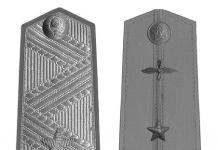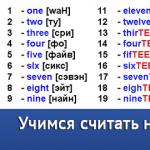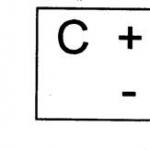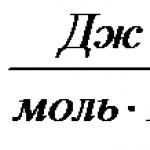Англо-русский перевод DEFINING AND NON-DEFINING RELATIVE CLAUSES
Ограничительные и распространительные определительные предложения Определительные придаточные предложения делятся на два типа: ограничительные (defining) и распространительные (non-defining). 1) Ограничительные определительные предложения содержат информацию, уточняющую значение слова, к которому они относятся. Они выбирают из класса предметов, обозначаемых определяемым словом, только те, которые отвечают определенным характеристикам. Опущение ограничительного придаточного предложения часто ведет к неясности или неправильности главного предложения, к изменению его смысла. Ограничительные определительные придаточные предложения не выделяются запятыми. He married a girl who he met at the library — Он женился на девушке, с которой познакомился в библиотеке (... девушке, (какой именно?) c которой... При опущении придаточного главное предолжение тоже изменяет смысл: He married a girl) People who don"t smoke live longer — Люди, которые не курят, живут дольше (Люди, (какие именно?) которые... При опущении придаточного фраза главное предолжение тоже изменяет смысл: People live longer) 2) Распространительные определительные предложения содержат информацию, дополнительно характеризующую слово, к которому они относятся и которое достаточно определено само по себе, чтобы главное предложение не изменяло смысл при опущении придаточного определительного. Такие предложения встречаются реже ограничительных; употребляются преимущественно в письменной речи. Распространительные придаточные, в отличие от ограничительных, выделяются запятыми. This is Mary, who was my classmate — Это Мэри, с которой я учился в одном классе (- с ней я...) (... Мэри, (с какими еще свойствами?) с которой... При опущении придаточного предложения смысл главного сохраняется: This is Mary) 3) Между ограничительными и распространительными предложениями отсутствует четкое разграничение. Часто тип предложения определяется интонацией (распространительные предложения выделяются голосом), важностью информации в придаточном предложении (распространительные предложения содержат менее важную информацию) или тем, какая интерпретация более естественна. 4) Некоторые грамматические различия между ограничительными и распространительными придаточными предложениями: а) местоимение that не употребляется в распространительных придаточных предложениях - см. Relative pronouns, 2. б) относительное местоимение не может опускаться в распространительных придаточных предложениях - см. Zero relative pronoun.
English-Russian grammatical dictionary. Англо-Русский грамматический словарь. 2004
- Англо-Русские словари →
- Англо-Русский грамматический словарь
Еще значения слова и перевод DEFINING AND NON-DEFINING RELATIVE CLAUSES с английского на русский язык в англо-русских словарях и с русского на английский язык в русско-английских словарях.
More meanings of this word and English-Russian, Russian-English translations for the word «DEFINING AND NON-DEFINING RELATIVE CLAUSES» in dictionaries.
- DEFINING
Английский словарь Webster - DEFINING — (p. pr. & vb. n.) of Define
- DEFINING — /di fuy"ning/ , adj. decisive; critically important: Taking a course in architecture was a defining turn in her life.
- DEFINING — p.pr. & ·vb.n. of define.
Webster English vocab - DEFINING — Synonyms and related words: categorical, characteristic, classificational, classificatory, confining, definitive, denominative, differential, distinctive, divisional, divisionary, exclusive, limitary, limitative, limiting, …
- DEFINING — adj.
Oxford Collocations Dictionary Second Edition - DEFINING — adj. Defining is used with these nouns: attribute , characteristic , feature , moment , …
Oxford Collocations English Dictionary - DEFINING
Большой Англо-Русский словарь - DEFINING — Определение
Американский Англо-Русский словарь - DEFINING — Определитель
Британский Англо-Русский словарь - DEFINING — установление [маркировка] границ набора на дисплее
Англо-Русский словарь по полиграфии и издательскому делу - DEFINING — определяющий, определение global defining function ≈ глобальная определяющая функция orienting defining set ≈ ориентирующее определяющее множество set of defining relations …
Новый большой Англо-Русский словарь - DEFINING — определять определяющий
Англо-Русский словарь - RELATIVE — adj relative (1. not absolute; 2. ); pronomine relative relative pronoun; relative a relating to, relative to
Interlingua English vocab - NON — adv 1. not; 2. no; non! no!; si non 1. if not; 2. except, unless it be non- prefixo [ Word Family: noun: …
- NON- — non- /nɒn $ nɑːn/ BrE AmE prefix [ Language: Old French ; Origin: Latin non "not" ] 1 . If something is relative to a particular subject, it is connected with it.The documents are relative to …
Cambridge English vocab - RELATIVE — Synonyms and related words: affiliated, affinitive, agnate, allied, analogical, analogous, ancestry, appertaining, applicable, approximate, apropos, associated, associative, aunt, blood, …
Moby Thesaurus English vocabulary - NON — pref. non compos mentis non placet sine qua non
Collegiate Thesaurus English vocab - RELATIVE — n. 25B6; adjective the relative importance of each factor: COMPARATIVE, respective, comparable, correlative, parallel, corresponding. the food required is …
Concise Oxford Thesaurus English vocabulary - RELATIVE — adj. 1 related, connected, associated, allied, affiliated, interconnected, interrelated, pertinent, relevant, germane, applicable; apropos Your comments are not relative to …
Oxford Thesaurus English vocab
Придаточные предложения вводятся для того, чтобы дать дополнительную информацию о предмете или человеке. Таким образом, придаточные предложения являются частью сложного предложения и помогают упускать некоторые повторяющиеся слова.
The girl who lives next to me is a student. Who lives next to me – уточняющая часть предложения.
Существует два типа придаточных предложений – придаточные определительные (identifying) и придаточные неопределительные (non-identifying).
Identifying Relative Clauses вводятся в предложение с помощью относительных местоимений или относительных наречий :
1. Who/ whom/ that используется, когда говорим о людях
The person whom I talked to is my brother.
2. Which / that если речь идет о предметах
The boxes that I carried were very heavy.
3. Whose используется как с одушевленными, так и с неодушевленными предметами, для того, чтобы показать принадлежность (притяжетельный падеж )
The man whose house is opposite my house is a famous writer.
- Who, which, that можно опустить в предложении, если они являются дополнением в придаточном предложении. Например,
That is the book (that) I was telling you about.
- Whom можно использовать вместо who, если это дополнение в придаточном определительном предложении. Также whom всегда используется после предлога:
He is someone with whom I used to study.
- Who, which, that не упускаются, если они являются подлежащим в придаточном предложении:
The movie that was shown yesterday is a comedy.
Относительные наречия:
1. When, that используются для указание на время и могут быть упущенными:
That was the day (when) I first met him.
2. Where , чтобы указать на место:
The island where we spent our holiday belongs to Greece.
3. Why , чтобы указать на причину, может быть пропущено в предложении:
The reason (why) she stayed at home is only to be guessed.
RELATIVE CLAUSES
1 Underline any relative pronouns that can be left out in these sentences.
1 I think that my boss is the person who I admire most.
2 Harry, who was tired, went to bed very early.
3 Were taking the train that leaves at 6.00.
4 Have you seen the book that I left here on the desk?
5 The film which we liked most was the French one.
6 My radio, which isn’t very old, has suddenly stopped working.
7 The clothes which you left behind are at the reception desk.
8 The couple who met me at the station took me out to dinner.
9 Last week I ran into an old friend who I hadn’t seen for ages.
10 Don’t cook the meat that I put in the freezer - it’s for the dog.
2 Replace the relative pronouns in italics with that , where possible.
1 This is the magazine which I told you about.
... This is the magazine that I tild you about .............................
2 John’s flat, which is in the same block as mine, is much larger.
3 The girl whose bag I offered to carry turned out to be an old friend.
4 The policeman who arrested her had recognized her car.
5 I work with someone who knows you.
6 We don’t sell goods which have been damaged.
7 Brighton, which is on the south coast, is a popular holiday resort.
8 I don’t know anyone whose clothes would fit you.
9 There’s a cafe near here which serves very good meals.
10 People who park outside get given parking tickets.
3 Underline the most suitable word in each sentence.
1 My friend Jack, that / who / whose parents live in Glasgow, invited me to spend Christmas in Scotland.
2 Here’s the computer program that / whom / whose I told you about.
3 I don’t believe the story that / who / whom she told us.
4 Peter comes from Witney, that / who / which is near Oxford.
5 This is the gun with that / whom / which the murder was committed.
6 Have you received the parcel whom / whose / which we sent you?
7 Is this the person who / which / whose you asked me about?
8 That’s the girl that / who / whose brother sits next to me at school.
9 The meal, that / which / whose wasn’t very tasty, was quite expensive.
10 We didn’t enjoy the play that / who / whose we went to see.
4 Put one suitable word in each space, or leave the space blank where possible.
MURDER AT THE STATION by Lorraine Small Episode 5: Trouble on the 6.15 The story so far:
Jane Platt, (1) ….who... is travelling to London because of a mysterious letter, is the only person (2)............................ witnesses a murder at Victoria Station. The detective to (3)........................... she gives her statement then disappears. Jane goes to an office in Soho to answer the letter (4)................................. she had received. There she discovers that her uncle Gordon, (5)............................... lives in South America, has sent her a small box (6)............................ she is only to open if in trouble. Jane,(7)......................... parents have never mentioned an Uncle Gordon, is suspicious of the box, (8)........................... she gives to her friend Tony. They go to Scotland Yard and see Inspector Groves, (9)............................... has not heard of the Victoria Station murder, (10)....................... was not reported to the police. Jane gives Inspector Groves the murdered man"s ticket, (11)........................... she found beside his body. Then Jane and Tony decide to go to Redhill, (12)................................... was. The town (13)....................... the murdered man had come from. On the train they meet a man, (14).................................. face is somehow familiar to Jane, (15)......................... says he knows her Uncle Gordon …
5 Put a suitable relative pronoun in each space, or leave the space blank where possible.
1 My bike, ...wich............ I had left at the gate, had disappeared.
2 The shoes............................ I bought were the ones................................... I tried on first.
3 The bag in.........................the robbers put the money was found later.
4 The medicine.............................the doctor gave me had no effect at all.
5 Peter,................................... couldn’t see the screen, decided to change his seat.
6 I really liked that tea............................. you made me this morning.
7 What was the name of your friend.................................... tent we borrowed?
8 The flight......................................... Joe was leaving on was cancelled.
6 Make one sentence from each group of sentences, beginning as shown.
1 The hotel was full of guests. The hotel was miles from anywhere. The guests had gone there to admire the scenery.
The hotel, which. ..was miles from anywhere was full of guests who had gone there to admire the scenery......
2 I lent you a book. It was written by a friend of mine. She lives in France.
The book I...........................................................................................................
3 A woman’s handbag was stolen. A police officer was staying in the same hotel. The woman was interviewed by him.
The woman whose...........................................................................................
4 A goal was scored by a teenager. He had come on as substitute. This goal won the match.
The goal which......................................................................................................
5 I was sitting next to a boy in the exam. He told me the answers.
The boy I.......................................................................
6 My wallet contained over £100. It was found in the street by a schoolboy. He returned it.
My wallet,.............................................................................................................
7 My friend Albert has decided to buy a motorbike. His car was stolen last week. My friend Albert,..............................................................................
8 Carol is a vegetarian. I cooked a meal for her last week. She enjoyed it. Carol,......................................................................................................................
7 Make one new sentence from each pair of sentences. Begin as shown, and use the word given in capitals.
|
Brenda is a friend. I went on holiday with her. Brenda is ...the friend who I went on holiday ................................. |
||
|
This is Mr Smith. His son Bill plays in our team. This is Mr Smith....................................................................................... |
WHOSE |
|
|
Her book was published last year. It became a best seller. Her book.................................................................................................... |
WHICH |
|
|
This is the bank. We borrowed the money from it. This is the bank from............................................................................... |
WHICH |
|
|
I told you about a person. She is at the door. The person................................................................................................ |
||
|
Jack’s car had broken down. He had to take a bus. Jack,........................................................................................................... |
WHOSE |
8 Make one sentence from each group of sentences, beginning as shown.
1 I got on a train. I wanted to go to a station. The train didn’t stop there.
The train I.. got on didn"t stop at the station I wanted to go to ......................
2 I read a book. You recommended a book to me. This was the book.
The book I........................................................................................................................
3 The ship hit an iceberg and sank. Warning messages had been sent to it. The ship ignored these.
The ship,............................................................................................................................
4 The postman realized I was on holiday. You had sent me a parcel. The postman left it next door.
The postman,....................................................................................................................
5 I used to own a dog. People came to the door. The dog never barked at them. The dog I...........................................................................................................................
6 I bought my bike from a woman. She lives in a house. You can see the house over there.
The woman I....................................................................................................................
7 We went to a beach on the first day of our holiday. It was covered in seaweed. This smelled a lot.
The beach we...................................................................................................................
8 My neighbours have three small children. The children make a lot of noise.
My neighbours never apologize.
My neighbours,................................................................................................................
9 I bought a new computer. It cost me a lot of money.
The new.............................................................................................................................
9 These sentences are all grammatically possible, but not appropriate in speech. Rewrite each sentence so that it ends with the preposition in italics.
1 Margaret is the girl with whom I went on holiday.
... Margaret is the girl I went on holiday ..........................
2 The golf club is the only club of which I am a member.
3 That’s the girl about whom we were talking.
4 It was a wonderful present, for which I was extremely grateful.
5 This is the school to which I used to go.
6 Is this the case in which we should put the wine glasses?
7 Can you move the chair on which you are sitting?
8 That’s the shop from which I got my shoes.
9 Is that the person next to whom you usually sit?
10 This is Bill, about whom you have heard so much.
Семестр пролетел, как и не было. Казалось, еще учиться и учиться, а вот уже экзамены сданы! Недаром говорят - Все в мире относительно. Предлагаю очередную тему моей грамматической рубрики: Relative Clauses - Все относительно!
Для начала, хочу напомнить о разнице между Sentence
и Clause.
Sentence
- все предложение от начала до конца. Может содержать в себе много Clause-ов. Бывает сложно-сочинительное, когда Clause-ы не подчиняются друг другу, и сложноподчинительное, соответственно:)
Существует два типа придаточных определительных:
|
Defining relative clauses |
Non-defining relative clauses |
|
ограничительные |
распространительные |
|
Those who have not yet registered should do so at once. — Те, кто еще не зарегистрировался, должны сделать это незамедлительно |
Yesterday we visited the City Museum, which I"d never been to before . — Вчера мы ходили в Городской музей, в котором я никогда раньше не был |
|
уточняют значение определяемого слова: только те, кто еще не зарегистрировался |
сообщают дополнительную информацию об определяемом слове - музее |
. Мы используем which / that, когда говорим о вещах, понятиях:
The office which / that
the CEO prefers is in the city centre.
Офис, который
предпочитает наш директор, находится в центре.
which / that
the CEO prefers говорит о том, какой именно офис
Subject and Object relative Clauses
Относительные местоимения who/which/that могут быть опущены, если они являются объектом Defining relative clause:
The manager (who) we hired
Менеджер, которого
мы наняли
на прошлой неделе
Наняли кого?
- которого:) в смысле менеджера; которого - объект
The manager who applied
last week has already resigned.
Менеджер, который обратился
к нам
Обратился кто?
- который:) в смысле менеджер; который - субъект
Если относительное местоимение является субъектом, оно не опускается.
Non-defining relative clauses
Используются, чтобы дать дополнительную информацию о человеке или предмете:
Mr. Green, who is our best lawyer, is going to leave the company.
Нам известен человек, о котором мы говорим - Мистер Грин.
Тот факт, что он лучший юрист - дополнительная информация.
. Определительное придаточное предложение может относиться не только к отдельному слову, но и ко всему главному предложению целиком. Такое придаточное может вводиться только союзом which. Находится оно всегда после главного предложения:
He never
admits his mistakes, which
is extremely annoying.
Он никогда не признает своих ошибок, что
безумно раздражает
.jpg) |
И, как обычно, немного упражнений для отработки полученных знаний:) |
Relative clause – это придаточное предложение, выполняющее в предложении функцию определения.
Давайте рассмотрим несколько предложений с определительными придаточными, чтобы понять, что они из себя представляют.
My friend who lives in Canada has divorced recently. Мой друг, который живет в Канаде, недавно развелся.
That’s the boy who broke my glasses . Это мальчик, который разбил мои очки.
This is the exercise that I couldn’t do . Это упражнение, которое я не смог решить.
The poem which you wrote is great! Стихотворение, которое ты написал, великолепно!
The girl whom you wrote is my cousin. Девушка, которой ты написал, моя двоюродная сестра.
This is Mike, whose elder sister was on yesterday party . Это Майк, чья старшая сестра была на вчерашней вечеринке.
Where is this the house which/that you bought? Где дом, который вы купили?

Как вы видите из примеров, Relative Clauses в английском языке могут начинаться с таких относительных местоимений как (relative pronoun ) :
who (кто, который – употребляется только с людьми),
that (что, который – употребляется с неодушевленными и одушевленными предметами),
which (который – может стоять только в середине предложения, используется с неодушевленными предметами),
whom (которому – употребляется с одушевленными предметами),
whose – чей.
А теперь давайте перейдем к самому главному, к правилам Relative clause:
|
|
|
Давайте рассмотрим предложение: The couple who live next door have twelve children. Пара, которая живет по соседству, имеет 12 детей. (Грамотнее, конечно, на русский перевести как: У пары, живущей по соседству, 12 детей). The couple have twelve children –это главное предложение. Если мы хотим дать какое-либо уточнение об этой семейной паре (какая она?), то необходимо использовать определительное придаточное предложение – defining relative clause . В данном случае это — who live next door. Who в является относительным местоимением — relative pronoun. Обратите внимание, что относительное местоимение может быть как субъектом, так и объектом главного предложения. I have a friend who speaks German. У меня есть друг, который говорит на немецком языке. Здесь who является подлежащим = Он говорит. The girl who you saw speaks Chinese. Девушка, которую ты увидел , говорит на китайском языке. Здесь who является определением. Спрашивается, зачем это надо знать? Все дело в том, что если who является подлежащим (т.е. субъектом, выполняющим действие), то его можно опустить!
|
|
|
|
Обратите внимание, что если who является объектом (т.е. определением), то его можно заменить на whom, если речь, конечно, идет о человеке. Если речь идет о неодушевленном предмете и животных, то надо использовать местоимение which. Местоимение that можно использовать как к одушевленным, так и к неодушевленным предметам. Возникает вопрос, если that может заменить who и which, то можно ли его тогда использовать всегда и забыть о других местоимениях? Нет, так делать нельзя. Грамотно that использовать в следующих случаях:
|
|
Обычно that используется в тех предложения, где оно является субъектом (т.е. то, что выполняет действие) и стоит после таких слов как: Something [‘s?m???] — кое-что, что-нибудь, что-то Anything [‘en????] — что-нибудь All [??l] – все Little [‘l?tl] – мало, маленький Much – много None – ни один из Также местоимение that используется в предложениях с превосходной степенью сравнения. Кстати, подробнее о степенях сравнения в английском языке читайте здесь. |






















